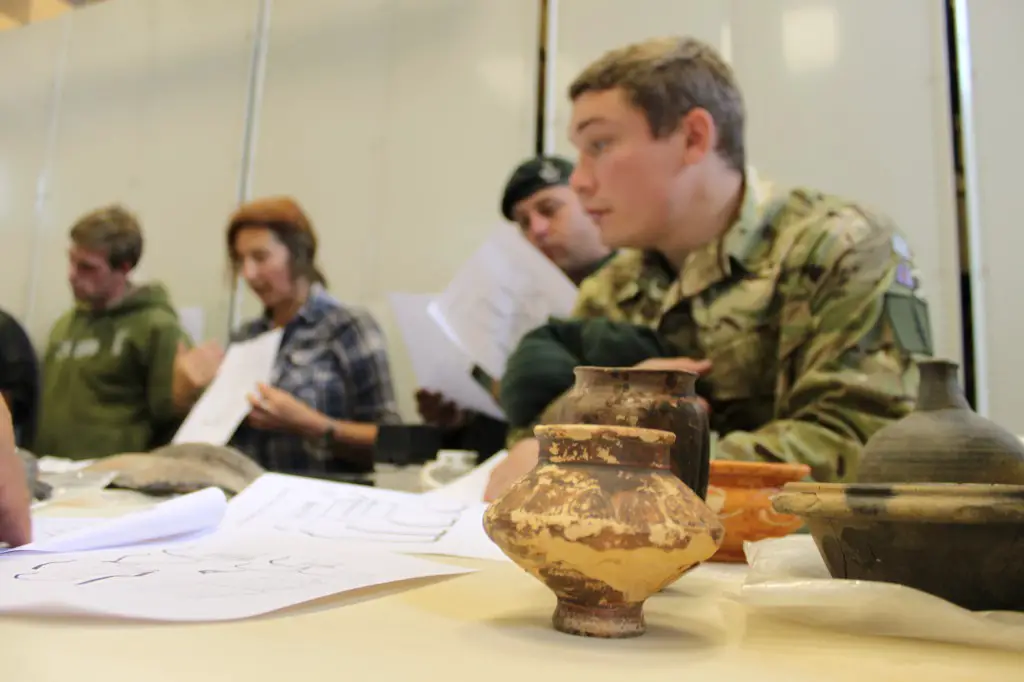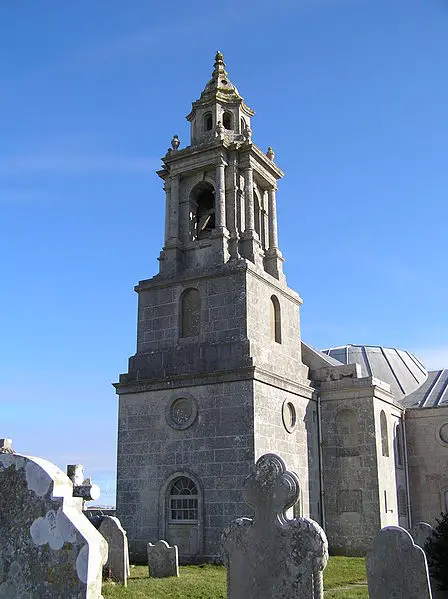
Soldiers returning from active service abroad will be lending their time and skills to conserve, repair and investigate the fascinating church of St George’s in Portland , Dorset.
We are running this project with the support of a £40,700 successful Heritage Lottery Fund (HLF) bid together with other local grant funding, the project will involve Wessex Archaeology, students and local amateur archaeologists working alongside the soldiers in a complete metric survey of the churchyard.
The latest laser scanning equipment will be utilised in the project and it is hoped the servicemen will be able to acquire associated professional skills as part of their programme of rehabilitation involving the pioneering project Operation Nightingale. The project has already shown that working with archaeology can help with dramatic improvements.
The project will involve vital conservation and repair of about a quarter of the tombstones and memorials in the enormous churchyard which contains as many as 1,000 graves. Many of the memorials tell extraordinary tales of shipwreck, tragedy and heroism – all carved on to the local smooth, white Portland stone.

St George’s Church is a Church of England church on the Isle of Portland, built between 1754 and 1766 to replace St. Andrew’s which had fallen into disuse and was no longer suitable as a place of worship. The church was closed in 1914 for many reasons, and fell into further disrepair ever since that time. In the 1960s however, the church fell under the protection of a newly formed group, the ‘Friends of St George’s Church’, who were able to restore the church. Now no longer needed for regular worship, the church is now a redundant church in the care of the Churches Conservation Trust
Dr Neil Rushton, Conservation Manager for the CCT says;
“Once the conservation repairs and archaeology are complete we plan to involve local schools and the Portland community in a programme of memorial recording.
We hope to complete the project in time for the 2012 Olympics with an aim to attract new visitors to this renewed and reinterpreted heritage site. We are very grateful to the Heritage Lottery Fund and other grant givers for helping us to make this happen.”
Commenting on the grant award, HLF’s Acting Head of South West,Richard Bellamy, said:
“We are delighted to be able to support this project. Not only will it,help to preserve the important monuments in the churchyard but it will also allow fascinating stories from Portland’s past to be told, whilst providing valuable therapeutic work for returning service personnel”
Sgt Diarmaid Walshe who leads the project for the Army said “we are delighted to assist the local community in recording heritage in their local area which helps strengthen inks between the Army and the public”
Working alongside Dr Rushton and his team is the CCT Development Officer Kim Thompson who will be working with volunteers on new exhibitions to be placed in the church interior.
Follow Operation Nightingale – http://www.opnightingaleheritage.com




